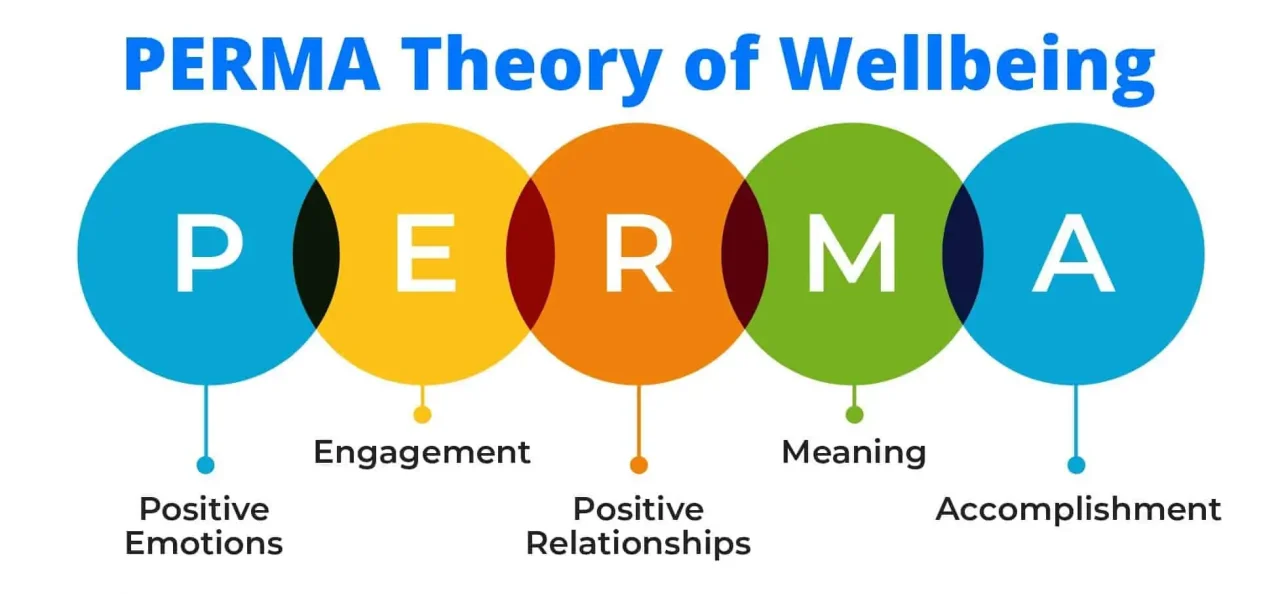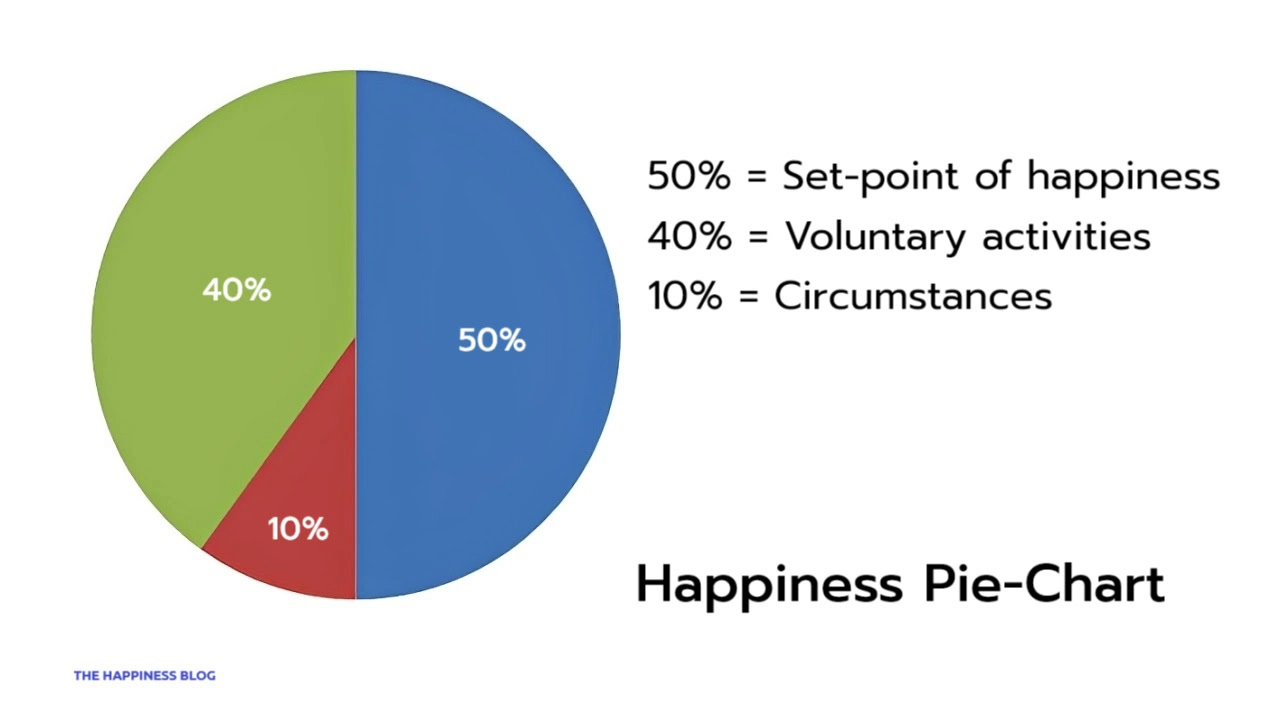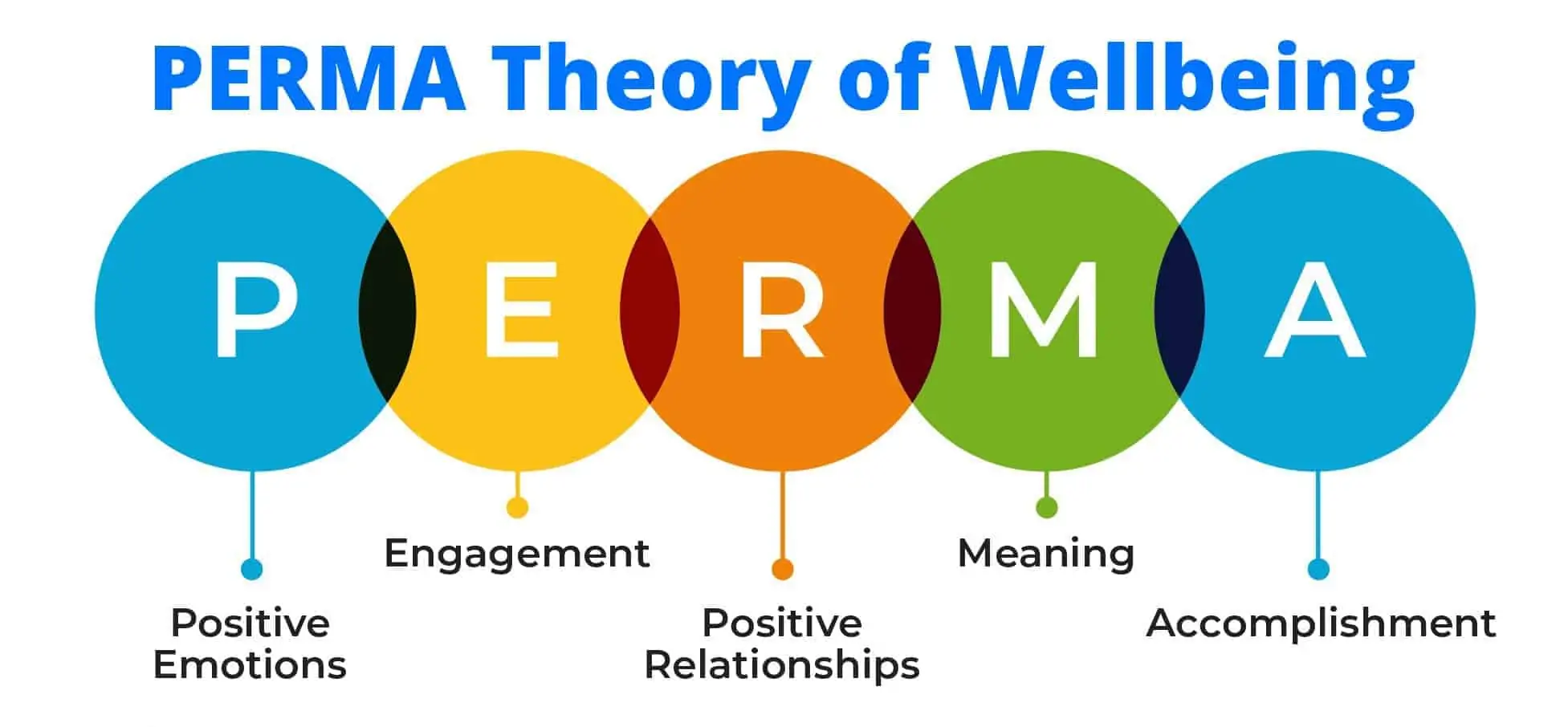Today's Friday • 10 mins read
— By Dr. Sandip Roy.
This is the first post on this blog, originally published on July 9, 2014.
All of us know what happiness feels like, though everyone may feel it differently. Don’t we know someone who can hide their sorrow behind a smile?
“Happiness is more than the absence of sadness and the presence of smiles.”
So, is there a universal way to define happiness?
Defining Happiness
Aristotle defined happiness as “the meaning and the purpose of life, the whole aim, and end of human existence.”
A modern happiness scientist would define happiness as:
Happiness = A dynamic state of flourishing that includes positive emotions, engagement, worthwhile relationships, a sense of meaning and purpose, and personal accomplishment, achieved through intentional actions that align with one’s strengths and values.

What’s The Science of Happiness?
Happiness science, or the Science of Happiness, is the scientific study of what’s good in life and what makes life worthwhile.
- It started with Abraham Maslow and Carl Rogers’ humanistic psychology movement that underscored people’s inherent goodness, free will, potential, purpose, self-actualization, and transcendence.
- At present, it is formally called Positive Psychology: a field founded by Martin Seligman, Ed Diener, Chris Peterson, and others in 1998.
- The goal of the science of happiness is to find and share ways to sustain and improve our happiness, wellbeing, and satisfaction with life.
- It studies the conditions and processes that lead to positive mental states, well-being, positive relationships, and positive institutions.
- Since it studies optimal human functioning, it is also known as the “science of flourishing.”
Tal Ben-Shahar, one of the first positive psychologists, defines it as:
“Positive psychology is the science of happiness. More specifically, positive psychology is about focusing on … love, happiness, strength, and virtues.”

How Martin Seligman Pioneered Modern Positive Psychology
For a long time, psychology fixated on mental disorders and was highly effective at treating conditions like depression, PTSD, and addiction. Yet, it overlooked a crucial aspect: what made us happier, not “less sad”.
A radical shift came in 1998 when Martin Seligman became the President of the American Psychological Association (APA). He urged psychologists to study human strengths, virtues, and accomplishments to better understand what makes people thrive.
This pivot birthed positive psychology, focusing on behaviors that help us find joy in our daily life, like our work, be happier in our relationships, and cultivate lasting fulfillment.
Positive psychologists now study topics like positive emotions, life satisfaction, empathy, resilience, and optimism, discovering habits that elevate well-being. They advise practices like socializing, gratitude, mindfulness, and acts of kindness to boost our overall happiness.
“We compared the upper 10% of consistently very happy people with average and very unhappy people. The very happy people were highly social, and had stronger romantic and other social relationships than less happy groups.”
— Ed Diener & Martin Seligman 2002
Seligman’s vision redefined psychology, empowering people to thrive, not just survive, through evidence-based strategies for a happier life.
10 Scientifically Proven Happiness-Boosting Activities
Here are ten science-based happiness-boosting activities:
- Count our blessings: A positive psychology practice of reflecting on and appreciating the things you’re grateful for in life, such as your relationships, opportunities, or simple joys. It shifts focus from negatives to positives, boosting your happiness and life satisfaction.
- Spend time in “flow” activities: “Flow” is a state of deep focus and enjoyment when you’re fully immersed in a challenging yet rewarding activity. You can get into a flow state by doing things you enjoy, say painting, writing, or playing a sport, where your skills are matched with the challenge.
- Find time to be with good friends: It’s been proven, time and again, that friends give us the most happiness of all our social connections. Spend time with friends who lift you. Schedule time to grab coffee, host a game night, or just chat. These bonds give you support and a sense of belonging. Your true friends are your chosen family, so make time for them.
- Take time off work: Don’t work yourself to burnout. Set work/leisure boundaries. After work, unplug from work emails. Send a memo when going on holidays: “I am out on PTO until Tuesday, and I will not be checking my phone for work calls or emails until I return.” Remember, your workplace is not your home, and your colleagues are not your family.
- Exercise and meditate: Keep stress from weighing you down. Physical activity releases endorphins. So move your body daily: walk, dance, or hit the gym. Pair it with daily mindfulness meditation, like a 10-minute mindful breathing session, to calm your mind. Or try slow movements like tai chi or yoga that blend both and lift your mood. Make daily exercise and meditation non-negotiables.
- Expose yourself to novel experiences: Break out of your routine. Try something new, like a cooking class, hiking a new trail, or booking a weekend trip. Novel experiences fire up dopamine and make life feel richer. Novelty keeps the brain engaged, fosters adaptability, and enriches life’s meaning.
- Stop overthinking the past: Don’t let old regrets trap you. Write down nagging thoughts in a journal or challenge them by asking, “How much of this really matters now?” Shift your focus to the present, it’s where life happens. You’re not your past mistakes, so stop replaying them.
- Be more accepting of your flaws: Self-compassion is treating ourselves with kindness and empathy, as we would treat our best friend. We realize that we aren’t perfect, just like everyone else. We are more forgiving of our flaws and mistakes, which reduces our anxiety and pessimism.
- Help others without expecting anything back: Acts of kindness that don’t expect anything in return boost your happiness by giving you a sense of purpose and connection. Volunteer at a local shelter, help a neighbor, or listen to a friend. Do these without keeping score; let your generosity be its own reward.
- Visualize your “best possible self” (“BPS”): Visualize your ideal future self in vivid detail, having successfully achieved your goals, fully embodying your strengths, and living out your aspirations. It boosts motivation, optimism, and clarity in pursuing those outcomes. Sheldon & Lyubomirsky (2006) show that visualizing best possible selves can raise and maintain positive mood. Better yet, write regularly about your “best possible self”.
How Much Happiness Is Under Your Control?
According to the science of happiness, our happiness levels change from day to day, and even hour to hour, yet a large part of it is under our control.
Studies by positive psychologists Sonja Lyubomirsky and Kennon Sheldon suggest that we control roughly about 40% of our happiness.

The Happiness Formula outlines the percentage of causes that determine our happiness.
PERMA in Positive Psychology
PERMA is a foundational model in positive psychology, developed by Martin Seligman.

PERMA outlines five core elements of well-being and happiness. Each part contributes to a happy life, and together they help us understand and cultivate psychological health.
P – Positive Emotion
- What it is: Experiencing feelings like joy, gratitude, hope, love, or contentment. These emotions broaden your perspective and build emotional resilience.
- Why it matters: Positive emotions enhance life satisfaction, reduce stress, and help you savor the present moment. They also foster optimism, making challenges feel more manageable.
- Example: Practicing gratitude (e.g., counting your blessings) or savoring a pleasant moment, like enjoying a sunset, boosts positive emotions.
E – Engagement
- What it is: Being fully absorbed in activities that challenge your skills and create a state of “flow,” where time seems to disappear. This often happens during tasks you enjoy and are good at.
- Why it matters: Engagement provides a sense of fulfillment and mastery, deepening your connection to the present and enhancing well-being.
- Example: Losing yourself in a hobby like painting, playing an instrument, or solving a complex problem at work fosters engagement.
R – Relationships
- What it is: Building and maintaining strong, supportive connections with others, such as friends, family, or community members. These bonds provide emotional support and a sense of belonging.
- Why it matters: Humans are social creatures, and positive relationships are critical for happiness, resilience, and long-term health. They offer love, trust, and shared joy.
- Example: Spending quality time with good friends or nurturing family ties strengthens relationships.
M – Meaning
- What it is: Having a sense of purpose or feeling that your life is part of something bigger than yourself. This can come from values, spirituality, or contributing to a cause.
- Why it matters: Meaning gives life direction and helps you persevere through challenges. It anchors happiness in a deeper sense of significance.
- Example: Volunteering for a cause you care about or pursuing work aligned with your values creates a sense of meaning.
A – Accomplishment
- What it is: Setting and achieving goals, whether big or small, that reflect your aspirations and strengths. This includes experiencing a sense of progress and mastery.
- Why it matters: Accomplishment boosts self-esteem, confidence, and motivation. It provides a sense of agency and pride in your efforts.
- Example: Visualizing your “best possible self” and working toward goals, like completing a project or learning a new skill, fosters accomplishment.
What is positive psychology? Where has it come from? Where is it going? To know more, read and download this 6,000-word article: What is Positive Psychology?
FAQs
Happiness is both Hedonia (how good we feel on a day-to-day basis) and Eudaimonia (how satisfied we are with our lives).
What is Hedonia?
What is Eudaimonia?
- The left prefrontal cortex area of the brain is more activated when we are happy and is also associated with a greater ability to recover from negative emotions, as well as an enhanced ability to suppress negative emotions. We can train ourselves to increase activation in this area of our brains. — Richard Davidson
Final Words
“Happiness … is a place to visit, not a place to live. It’s like the child’s idea that if you drive far and fast enough, you can get to the horizon—no, the horizon’s not a place you get to.” — Daniel Gilbert
Happiness is an ongoing experience, not a permanent state, much like a horizon you can never reach. So, you can have moments of joy, but you can’t have those permanently, as it’s an ever-shifting target.
Daniel Gilbert’s research also found that we are poor at predicting what will make us happy in the future. We overestimate the impact of both positive and negative events on our long-term happiness.
We think winning the lottery will make us happy forever, but it doesn’t. And we think a breakup will keep us unhappy for life, but it doesn’t.
We adjust to good and bad things much more quickly than we think.
So, happiness is not a fixed destination. Neither is unhappiness.
• • •
√ Also Read: The How Of Happiness: An Insightful Summary of The Book
√ Please spread the word if you found this helpful.
